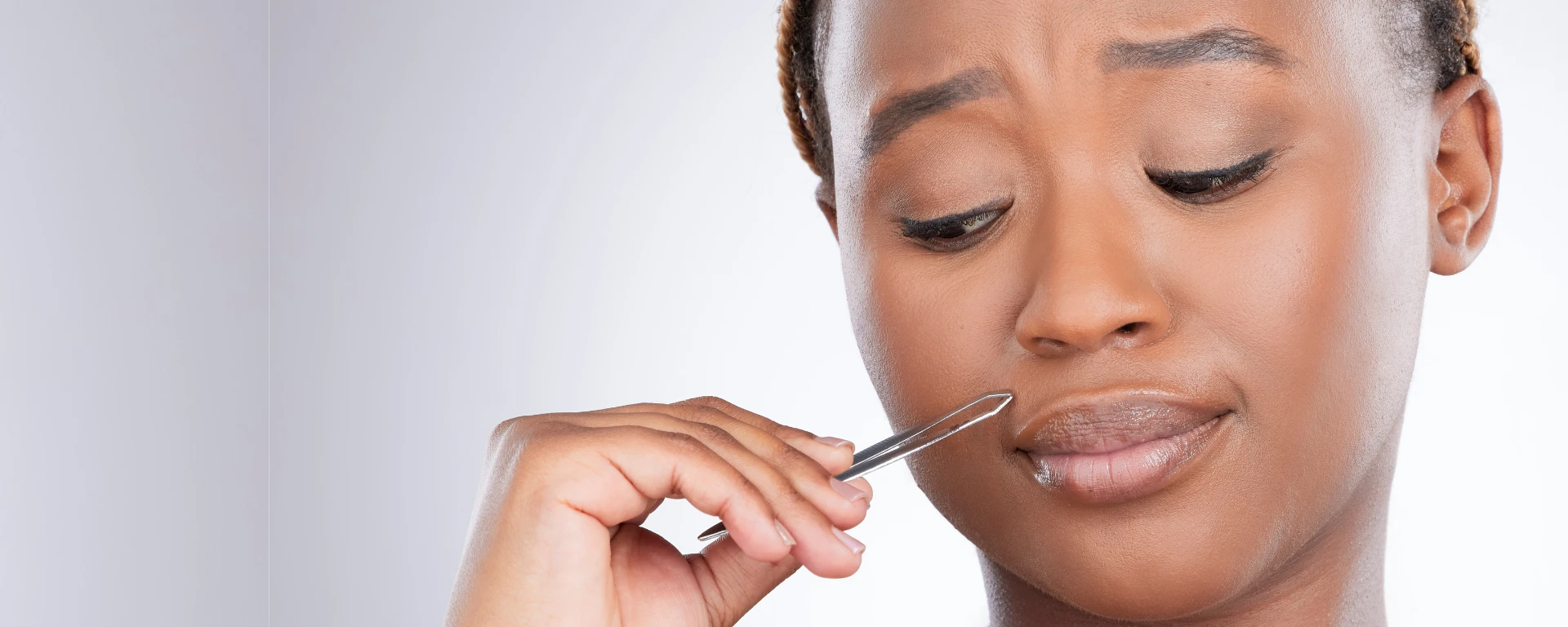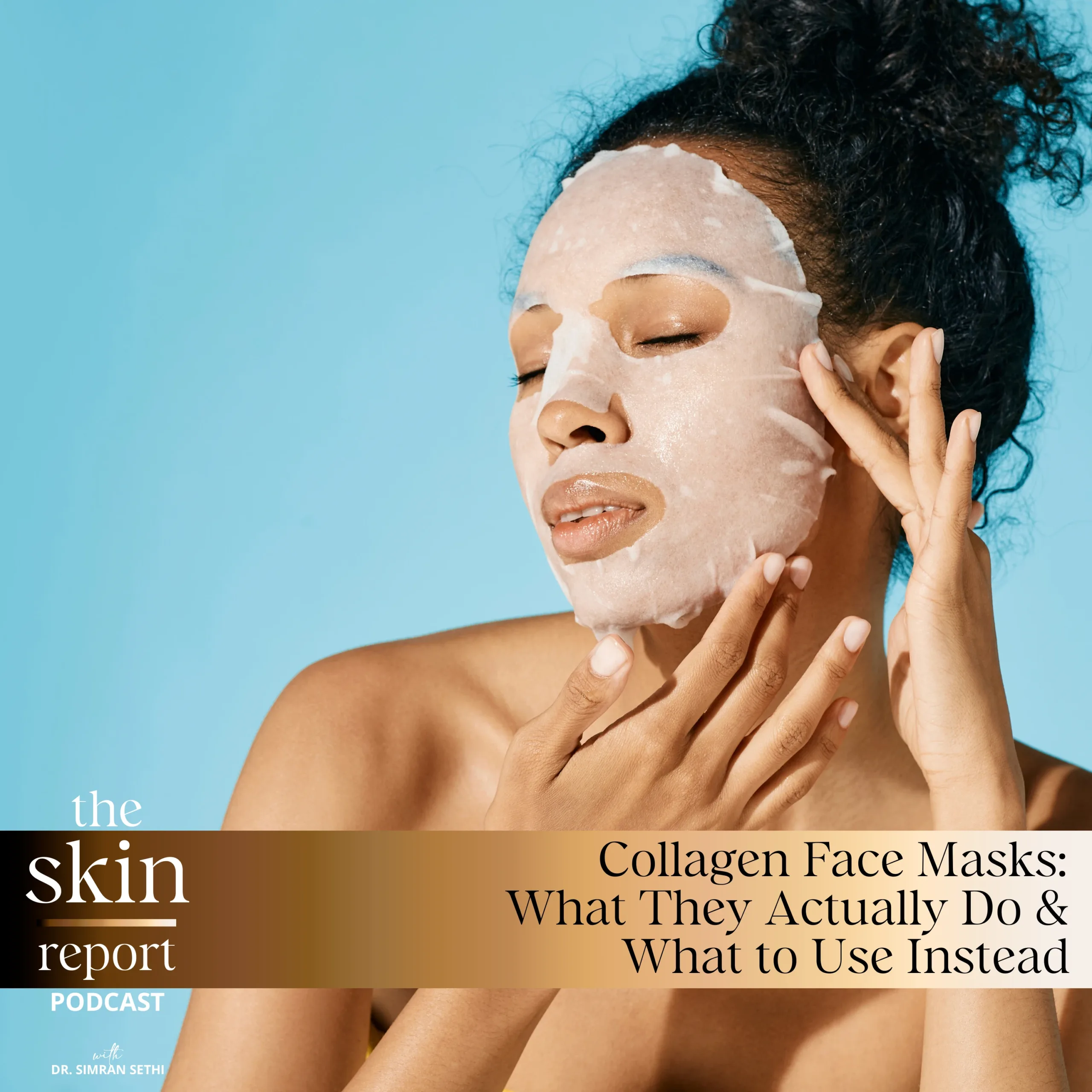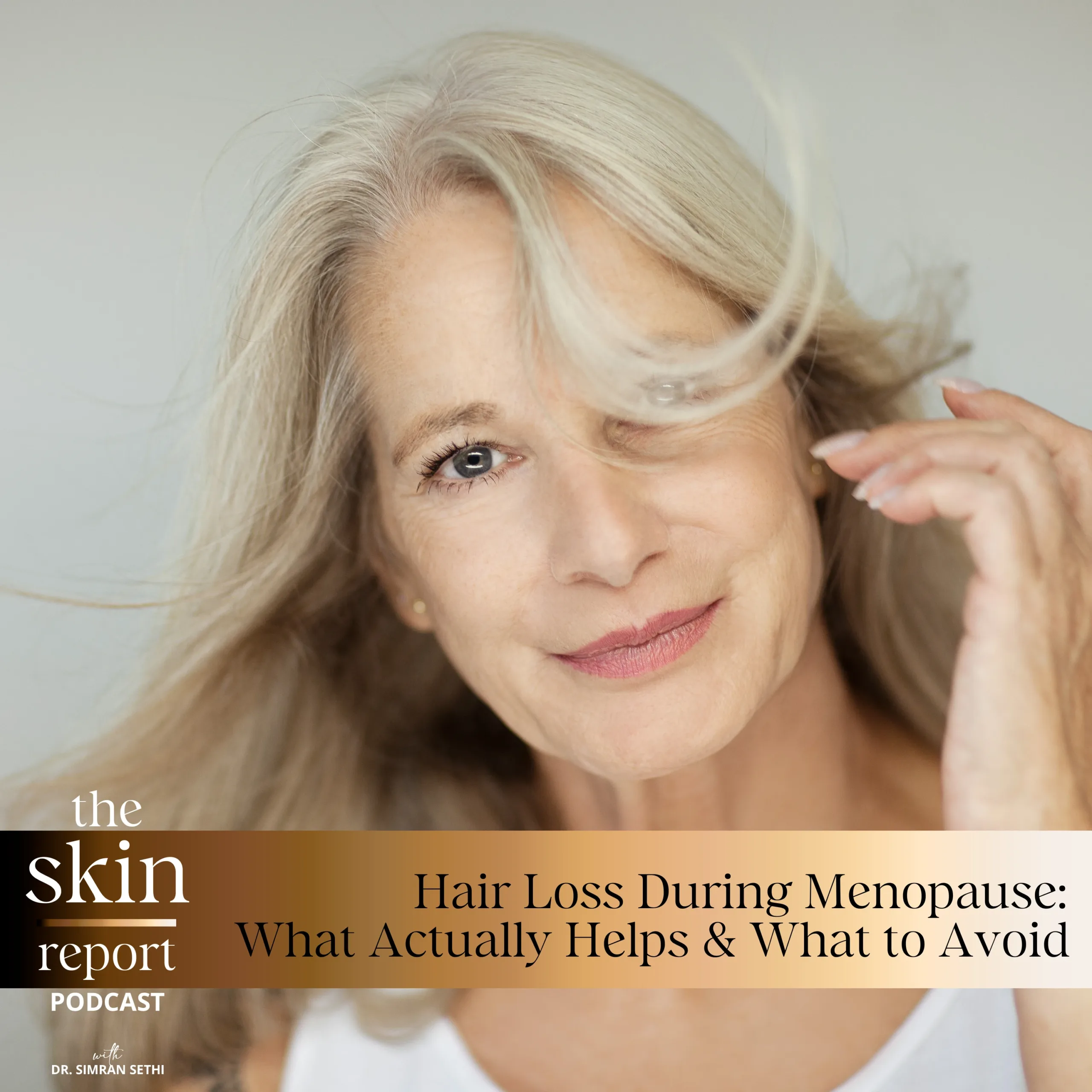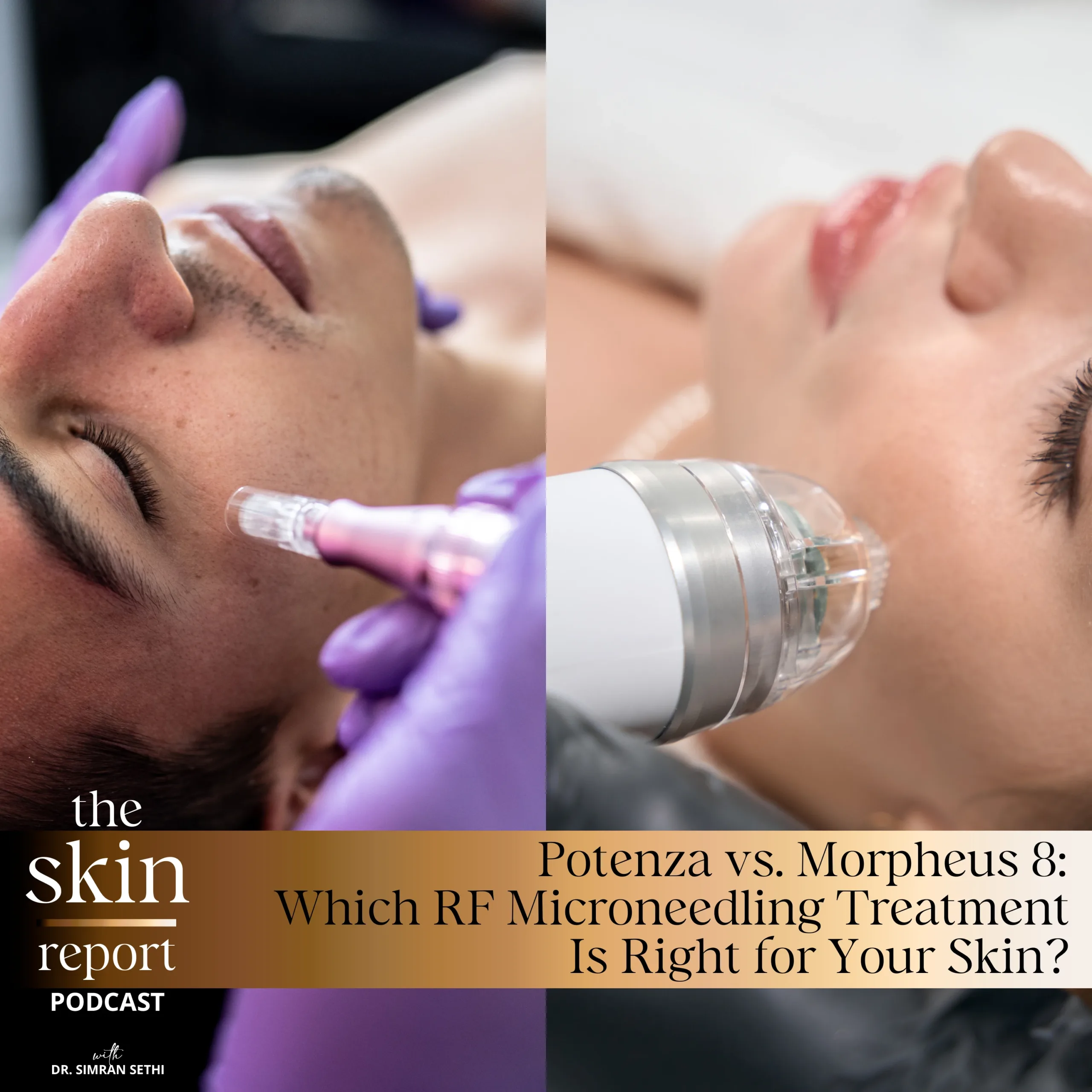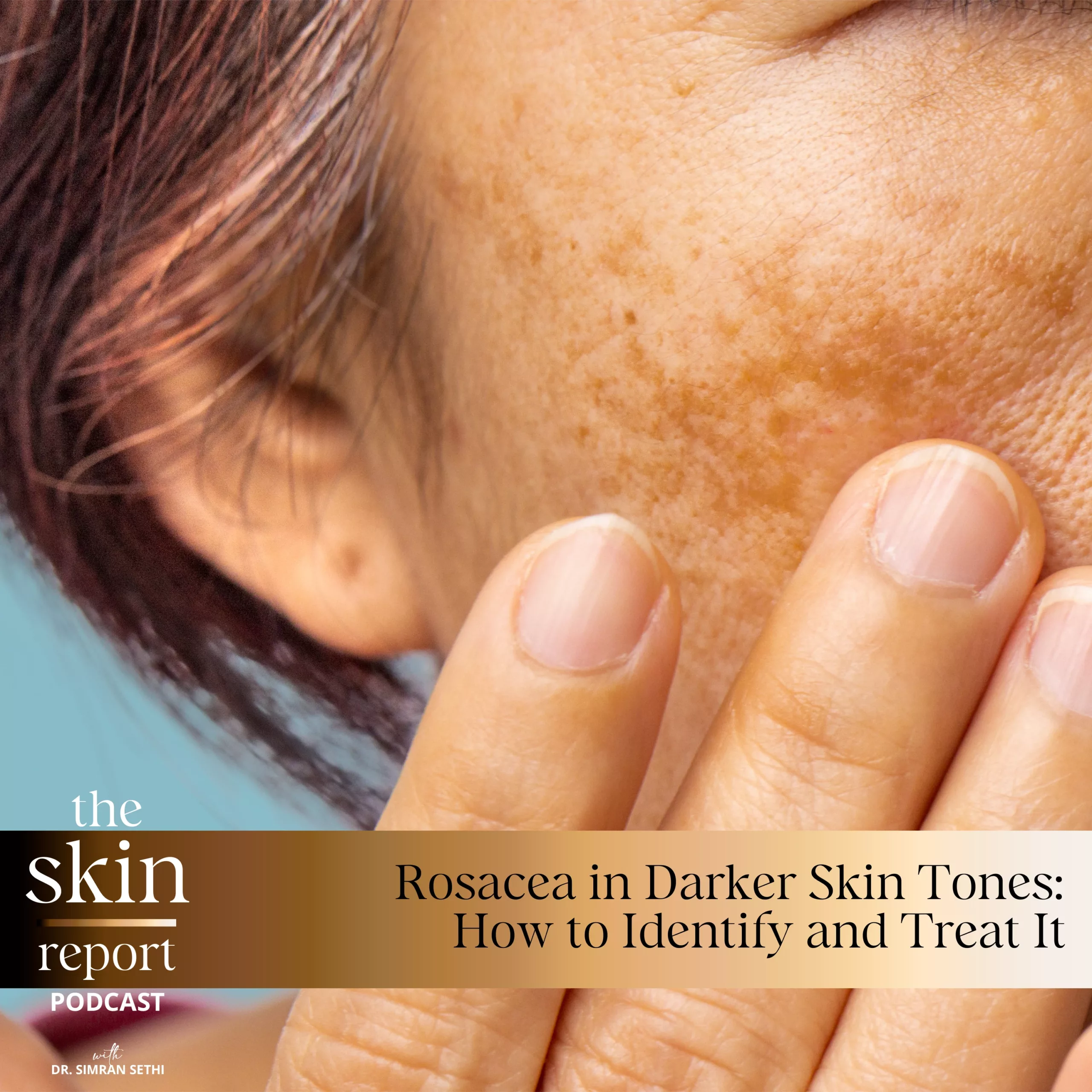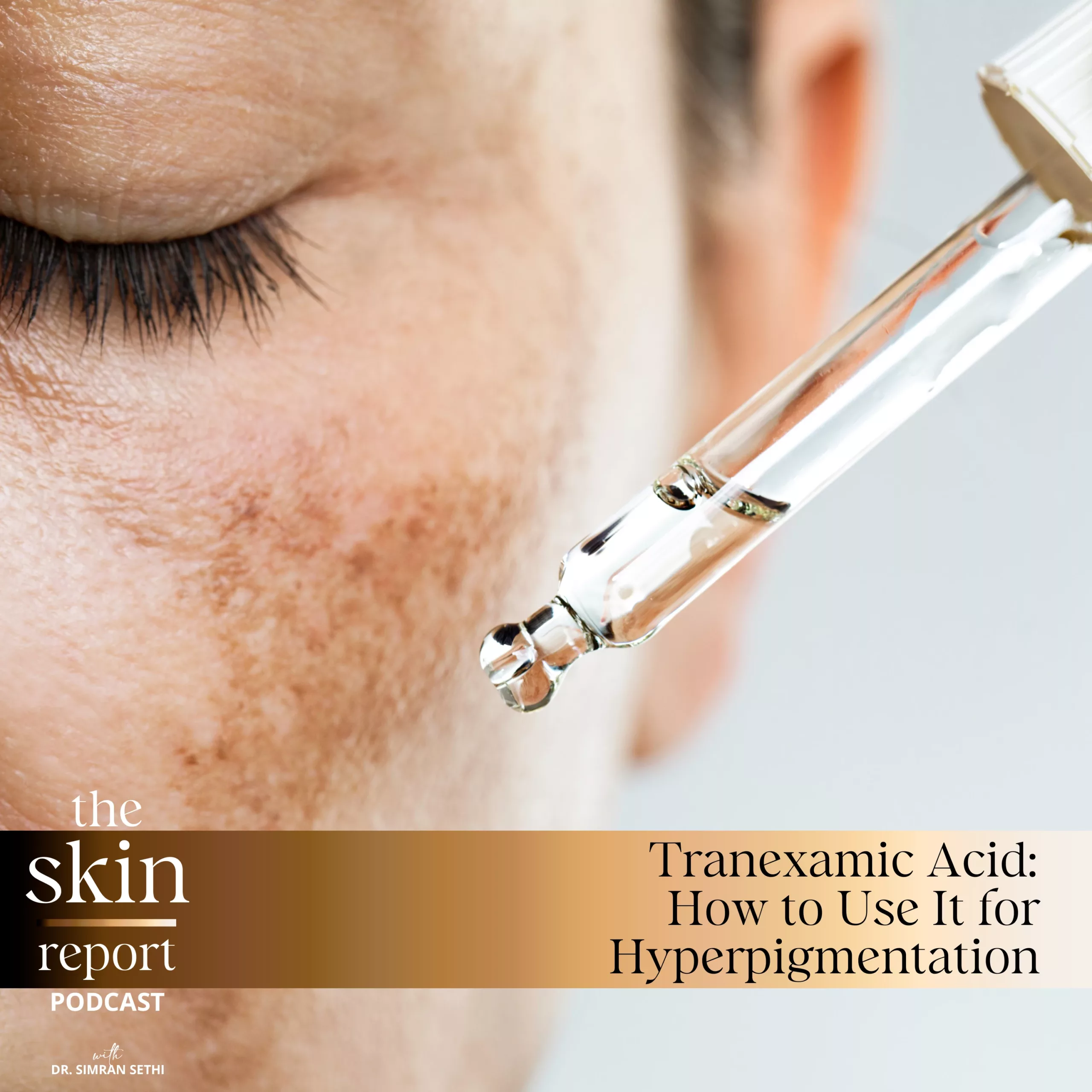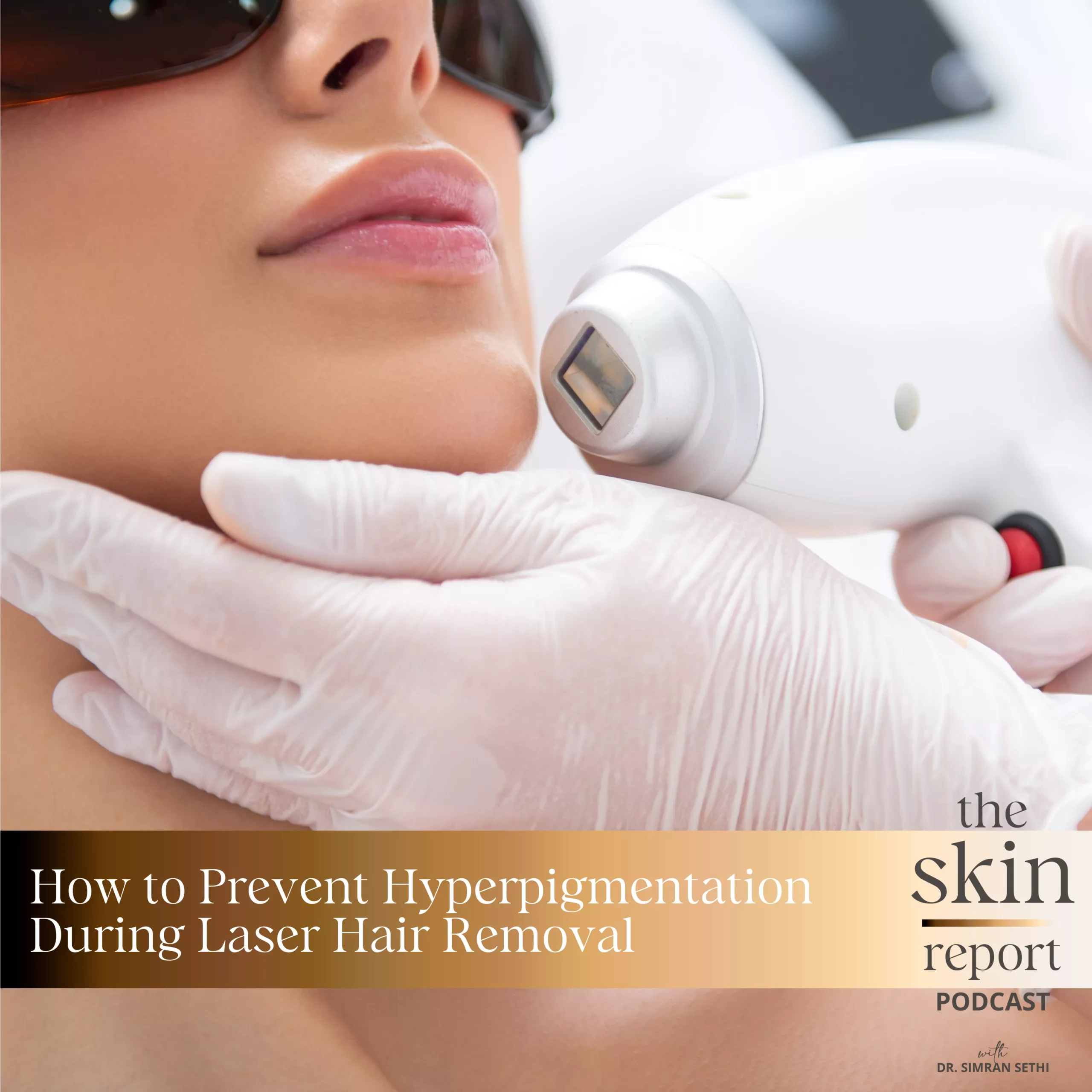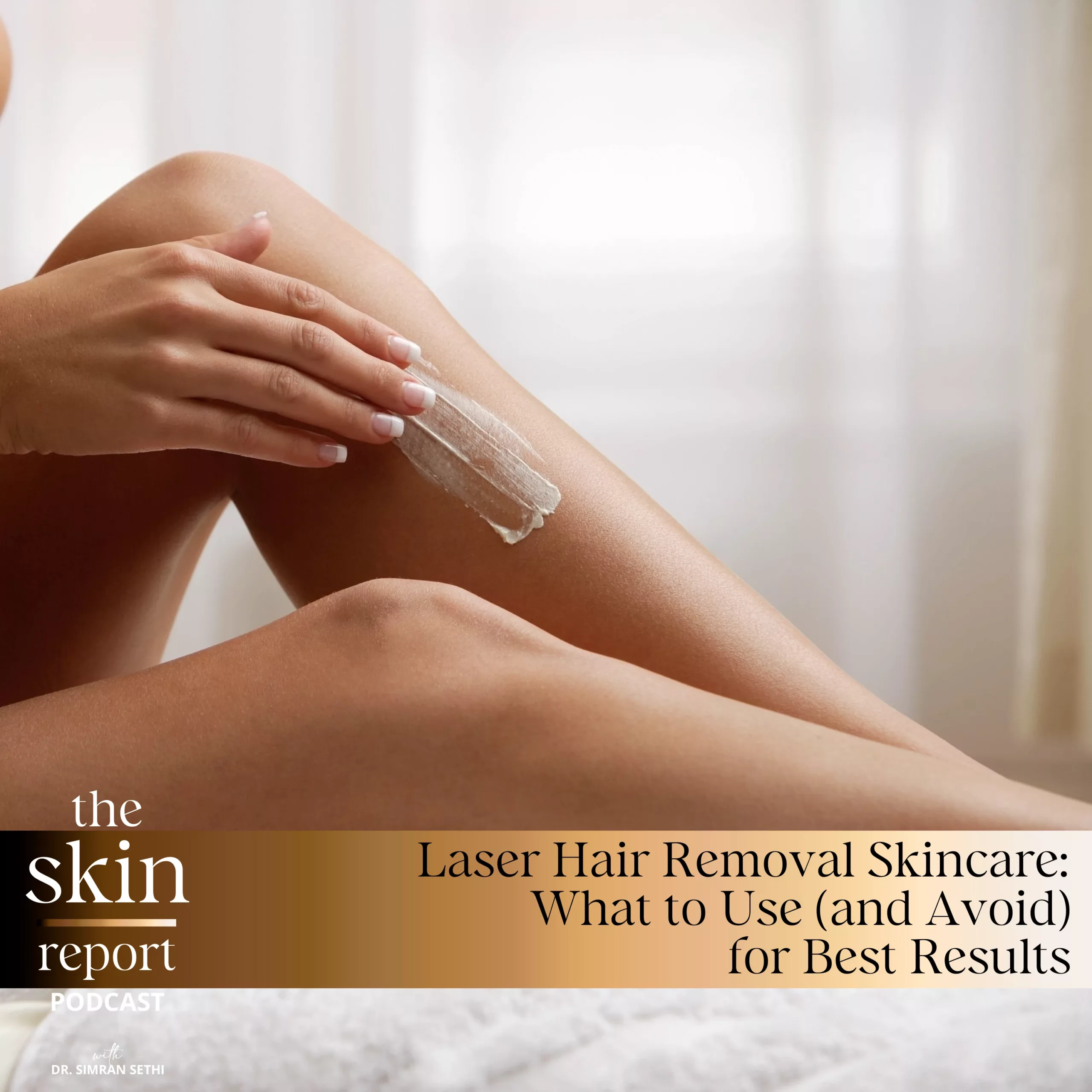Hello everyone and welcome to The Skin Report. We are going to discuss excess hair growth when someone has PCOS or polycystic ovarian syndrome and how to address that excess hair growth. What is the best way to do it, what is the safest way to do it, and also what kind of hair reduction techniques to avoid? What is polycystic ovarian syndrome? PCOS or polycystic ovarian syndrome is a condition where women have a little bit of an excess of androgens hormones like testosterone. Now, the problem with PCOS and which is why it is generally under diagnosed, is that we don’t have any good lab tests or radiological tests that give us the exact diagnosis. And in medicine, this kind of condition is called a condition that needs a medical diagnosis, so we make the diagnosis based on symptoms. Because the diagnosis of PCOS is based on symptoms, a lot of women are diagnosed after they have seen multiple types of doctors because they’re going to doctors to address the symptoms.
In my field where I’m doing medical aesthetics, I see a lot of women with PCOS who are coming to me because they have excess acne or excess hair growth. When women have PCOS, they have an internal signal hormonally that is driving excess growth of hair, much like a man because this hair growth is driven by an androgen excess or a testosterone excess. Because of that, it is very difficult to control that hair growth with topical methods or methods like laser hair removal, waxing, shaving, electrolysis. So, the first and foremost thing you have to do, if you know you have PCOS and you want to tackle facial hair growth, you need to be on an oral medication. There are a few different medications that can be used for reducing excess hair growth with PCOS, but the most successful one, in my opinion and in medical literature is a medication called spironolactone.
Spironolactone is actually a blood pressure lowering medication, which means that even if you’re using it in low doses, it can cause reduction in your blood pressure and it also alters your potassium levels in the blood, which is why spironolactone is something that you should discuss starting with your doctor and make sure they’re monitoring you while you are on it. It is very effective, but it is something that in some women is not as effective as in others. Another medication that is commonly used to reduce excess hair growth is birth control, especially at low doses. I found personally that with the use of birth control alone, you are not going to get very much reduction in facial hair or acne. It is more effective to be on both birth control and spironolactone, and if you do not want to take both of those medications, I would pick spironolactone or birth control to tackle facial hair growth.
You are going to want to undertake some sort of hair reduction technique. In that group, there is laser hair removal, there’s electrolysis and there’s the usual waxing, shaving, plucking. I’m going to start with the least invasive, more at-home solution, which is shaving, tweezing, waxing. While these are safe to do, because women with PCOS have more hair growth, they will likely need to do this frequently, which means most women with PCOS will tell you that they wax their face and exactly a day or two later, they need to wax again. Shaving is even more frequent. Most women with PCOS are shaving or plucking facial hair every day. This causes a lot of trauma to the skin, and over time, women will notice a shadow or hyperpigmentation on that skin. The next group, which is more popular is laser hair removal. Laser hair removal is a popular option for hair reduction because it’s permanent, painless, and actually very safe in all skin tones if done correctly.
When you have PCOS and if you have not taken any medications like spironolactone or birth control and do laser hair removal, you will not see a lot of reduction in hair growth. But the good news is you will see that the hair that you are growing is slowing down, the quality of the hair is finer. Typically, with PCOS, you have very coarse hair growth. Hair growth will become a little lighter and finer, but it’s not going to be permanent. You do have to be on an oral medication before hopefully, you start laser hair removal, and then you will have a successful response to laser hair removal treatments. Finally, let’s get into electrolysis. Now, electrolysis is a popular method of hair reduction. It is permanent, but the only problem with it is it is painful, which even if that does not matter or you don’t feel as much pain with electrolysis, it is something that you have to do almost weekly before you have cycled through all your follicles.
The issue with electrolysis really occurs in women of color. Electrolysis can cause some scarring. It can also cause hyperpigmentation because it is done weekly. This can cause a lot of scarring and hyperpigmentation in darker skin tones. So, if you are considering electrolysis, I think it’s a good option, but only with a provider who has worked with your skin tone, and that is a really important question that you have to ask before making that decision. If electrolysis is not an option or you’re not sure if it’s right for your skin tone, laser hair removal is still the gold standard, but again, it’s only effective if you are also on spironolactone or birth control. A lot of women ask, do I need to be on spironolactone or birth control for the rest of my life if I have PCOS? And the answer is no. Your hormones change as the years go by, and most of the time you need to be on these medications only for a few years because your hormonal balance will change.
So, the best way to undertake the journey with spironolactone or birth control or both is to have a plan with your physician on using it for a few years and then weaning off to see how your symptoms respond. PCOS is a very complex condition. I don’t think in medicine we know enough about it, and I also think it’s very under diagnosed. Hopefully, I’ve covered a lot of questions. My own patients ask me about excess hair growth with PCOS, but if there’s something I have not covered, please ask me in the comments below. And if you don’t already do so, please subscribe. Turn our notifications so you always know when we release new content.

